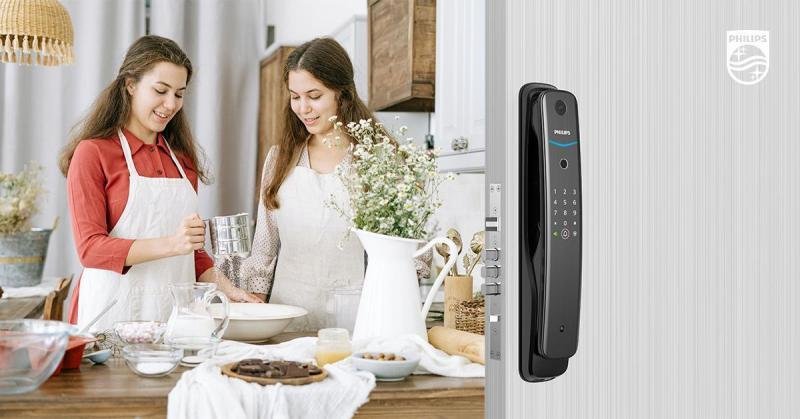Smart locks have rapidly gained popularity as an innovative solution to modern home security needs. But are they truly worth the investment? This article dives deep into their functionality, benefits, and drawbacks to help you make an informed decision.
Are Smart Locks Worth It? Understanding What They Are and How They Work
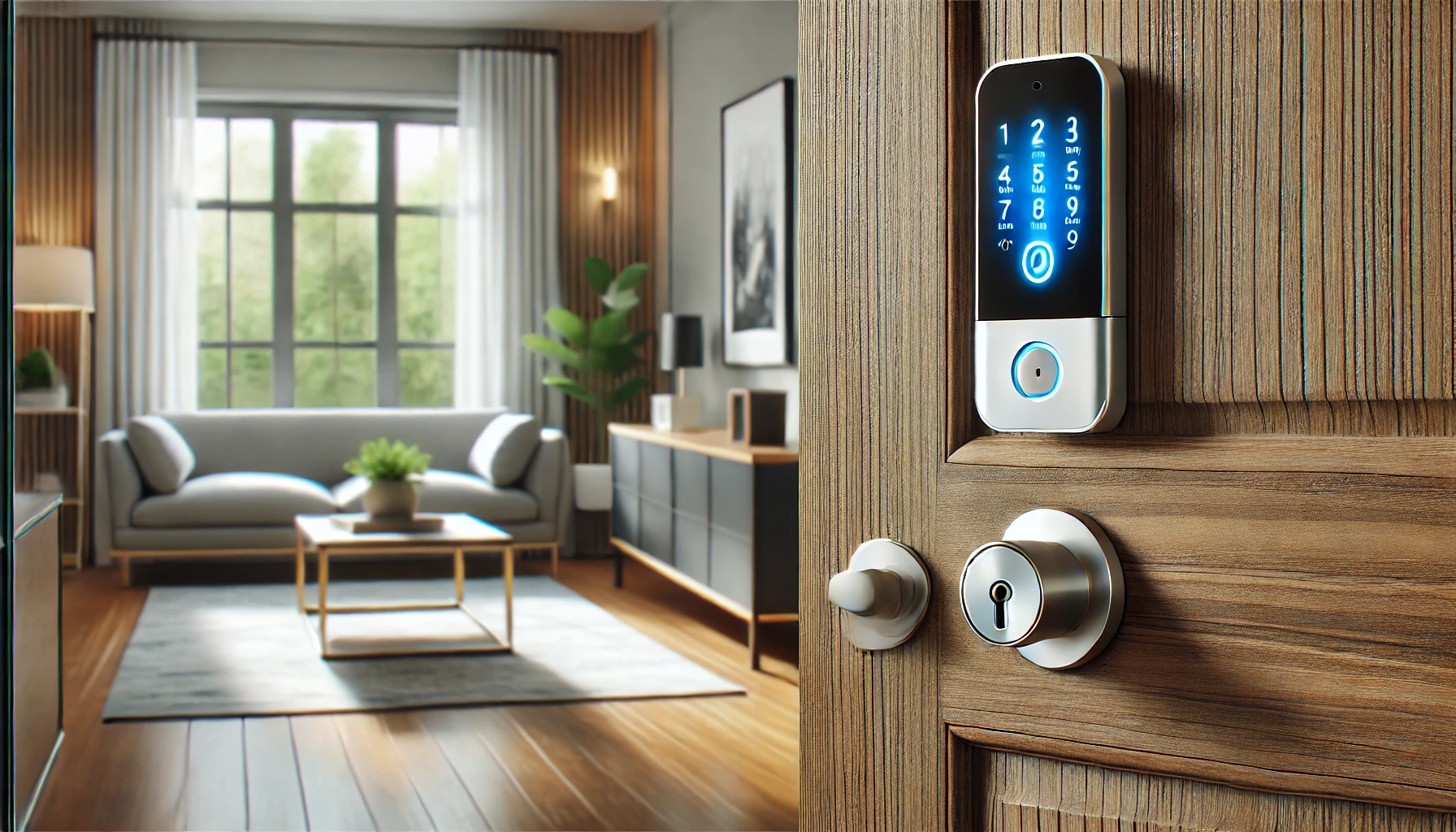
Smart locks have revolutionized modern home security, offering advanced features that make traditional locks seem outdated. Integrating digital technology provides a seamless and keyless way to secure your property. Battery life can vary depending on the model and connectivity method, with some Wi-Fi smart locks lasting under six months, while newer connectivity methods like Thread promise longer battery life.
Unlike conventional locks, smart locks rely on wireless technology and digital authentication methods, allowing users to control access remotely and securely. These locks aim to enhance convenience while maintaining robust security.
Smart locks typically operate via Wi-Fi or Bluetooth, connecting to your smartphone or smart home ecosystem. Users can lock or unlock doors using apps, biometric authentication, or voice commands. Advanced models also feature access logs, temporary passcodes, and real-time alerts, making them ideal for modern households. Understanding how they work is crucial to evaluating whether they are worth the investment for your needs. Various smart locks work with different technologies, including Matter, which may require additional bridges for setup.
Definition of a Smart Lock
A smart lock is an electronic locking system that allows users to remotely secure and control access to their homes or businesses using a smartphone, tablet, or voice assistant. Unlike traditional locks that require physical keys, smart locks offer keyless entry, providing advanced security features and unparalleled convenience. These locks can be integrated into smart home systems, allowing seamless control and monitoring. With smart locks, you can lock or unlock your door remotely, grant temporary access to guests, and receive real-time notifications about your door’s status, making them a popular choice for modern homeowners and businesses.
Brief History of Smart Locks
The concept of smart locks has been around for several decades, but it wasn’t until the early 2000s that the first smart locks were introduced to the market. Initially, these locks were primarily used in commercial settings like offices and hotels due to their high cost and complexity. However, as technology advanced and the Internet of Things (IoT) gained traction, smart locks became more affordable and user-friendly. Today, smart locks are widely available for residential use, offering homeowners a sophisticated and convenient way to secure their properties. The evolution of smart locks reflects the broader trend of integrating digital technology into everyday life, enhancing both security and convenience.
Operational Mechanism of Smart Locks
Smart locks operate using a combination of electronic and mechanical components. Typically, they consist of a motorized deadbolt, a control unit, and a communication module. When you send a command from your smartphone or voice assistant, the control unit processes the signal and activates the motorized deadbolt, locking or unlocking the door. This seamless interaction between hardware and software allows for keyless entry and remote control. Many smart locks also feature additional functionalities like access logs, temporary passcodes, and real-time alerts, providing a comprehensive security solution for your home or business.
Communication Protocols (e.g., Wi-Fi, Bluetooth)
Smart locks use various communication protocols to connect to the internet or a local network, with Wi-Fi and Bluetooth being the most common. Wi-Fi-enabled smart locks can connect directly to the internet, allowing you to control your lock from anywhere using a smartphone app. This is ideal for those who need to manage access remotely, such as granting temporary access to guests or service personnel. Bluetooth-enabled smart locks, on the other hand, connect to your smartphone or a local hub, offering local control and remote access through the internet. Each protocol has its benefits: Wi-Fi offers broader remote access, while Bluetooth provides a more straightforward, often more secure, local connection.
Additional Information
- Industry Statistics: The global smart lock market is projected to grow at a CAGR of 22.3% from 2021 to 2026, reaching $4.4 billion.
- Expert Insight: Cybersecurity specialist John Radcliffe notes, “Smart locks are only as secure as their software updates and user practices.”
- Case Study: A California homeowner reported an 80% reduction in lockout incidents after switching to a smart lock.
What Are the Pros and Cons of Smart Locks?
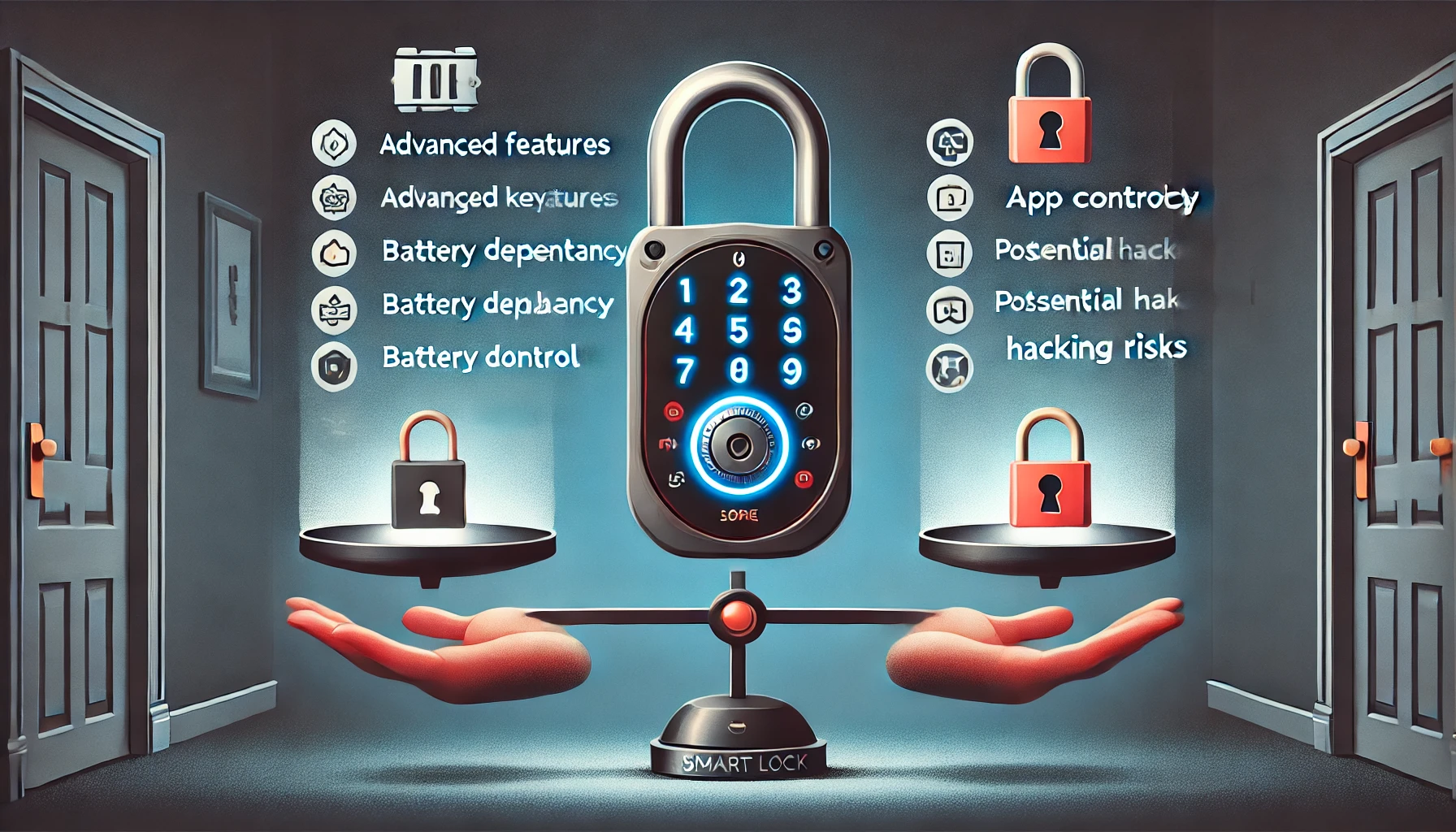
While smart locks offer a range of benefits, the best smart lock models are top-rated for their seamless integration with various smart home systems, enhancing home security and convenience. Evaluating their pros and cons will help determine if they’re the right choice for your security needs.
Most smart locks are designed to fit standard doors, offer battery management options, and provide enhanced security measures compared to traditional locking systems. Smart locks provide unparalleled convenience and advanced security features, but concerns such as battery dependency and potential hacking risks should also be considered.
Pros:
- Convenience: With features like remote locking and unlocking, managing your front door’s security has never been easier.
- Enhanced Security: Many smart locks use advanced encryption and biometric authentication.
- Integration: Perfect for smart home ecosystems, syncing with other devices seamlessly. Smart locks are designed to be compatible with various types of door hardware, ensuring a cohesive look and enhanced functionality.
Cons:
- Battery Dependency: Some models rely heavily on batteries, with a battery life of under six months, requiring regular replacements.
- Hacking Risks: Though rare, vulnerabilities in software could compromise security.
- Cost: Smart locks are more expensive than traditional locks, making them a significant investment.
Additional Information
- Survey Data: 65% of smart lock users value convenience as their primary reason for purchasing.
- Expert Insight: “Smart locks are great, but they should enhance—not replace—traditional security,” says Paul Hegarty.
- Case Study: A New York property management company improved tenant satisfaction by 35% using smart locks.
Brief Summary
- Convenience and enhanced security are significant advantages.
- Risks include battery dependency and potential hacking vulnerabilities.
- Smart locks require a higher initial investment than traditional locks.
Smart Locks vs. Traditional Locks: Which Is Better for You?
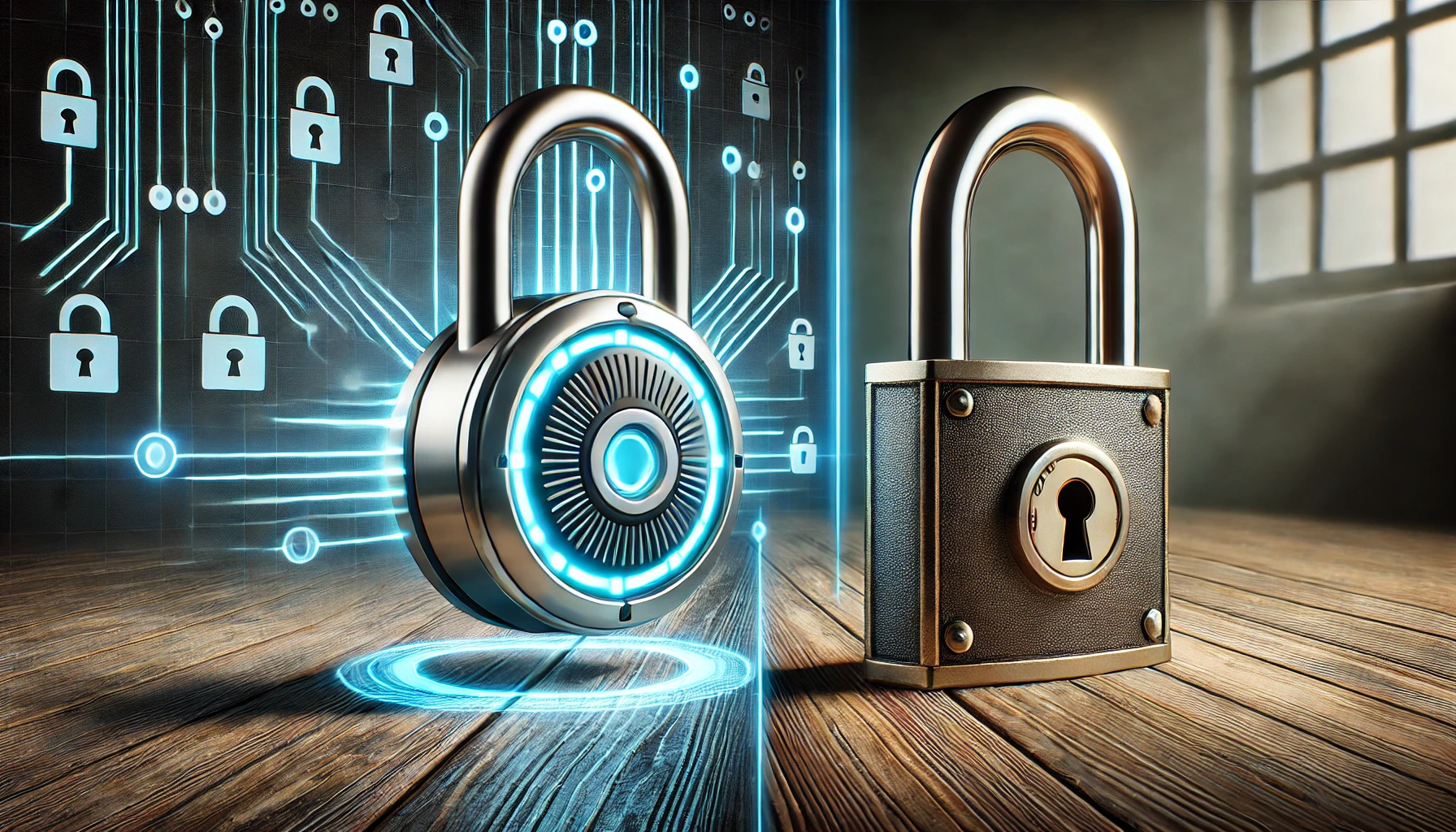
Choosing between smart locks and traditional locks depends on your specific needs. Each has distinct advantages and disadvantages that cater to different priorities.
Smart locks provide tech-savvy features like remote access and integration, while traditional locks, such as a deadbolt lock, offer simplicity and reliability without technical dependencies. Physically forcing a deadbolt lock is often easier than hacking a smart lock, highlighting different security considerations.
Smart locks excel in convenience and smart home compatibility, making them ideal for those who value technology integration. Traditional locks, however, are durable and not reliant on power or internet connectivity, appealing to those who prefer simplicity and cost-effectiveness. Both lock types aim to secure doors effectively, with traditional manual locks serving as reliable, low-maintenance solutions and smart locks enhancing door security through modern advancements. A comparison chart can help visualize the strengths and weaknesses of each option, guiding readers toward the best choice for their needs.
Cost and Value
The cost of smart locks varies widely, depending on the brand, model, and features. Basic smart locks can start as low as $50, while high-end models with advanced features can cost upwards of $300. While smart locks may seem expensive compared to traditional locks, they offer a range of benefits that justify the investment. These include convenience, advanced security features, and remote access, which can significantly enhance your home’s security and ease of use. Additionally, smart locks can provide long-term cost savings by reducing the need for physical keys and minimizing the risk of lockouts. Overall, smart locks offer excellent value for homeowners and businesses looking to upgrade their locking systems and enhance their security and convenience.
Additional Information
- Data Insight: Consumer Reports reveals Grade 1 traditional deadbolts and high-quality smart door locks outperform many entry-level smart locks in brute force tests.
- Expert Insight: “The best choice often blends traditional and smart locks,” advises consultant Sarah Blake.
- Case Study: A Texas family retained a traditional deadbolt alongside a smart lock for power outages.
How to choose?
- Smart locks are best for tech-savvy users seeking convenience.
- Traditional locks are cost-effective and reliable.
- Consider personal preferences and security priorities when choosing.
Who Should Consider Investing in a Smart Lock?
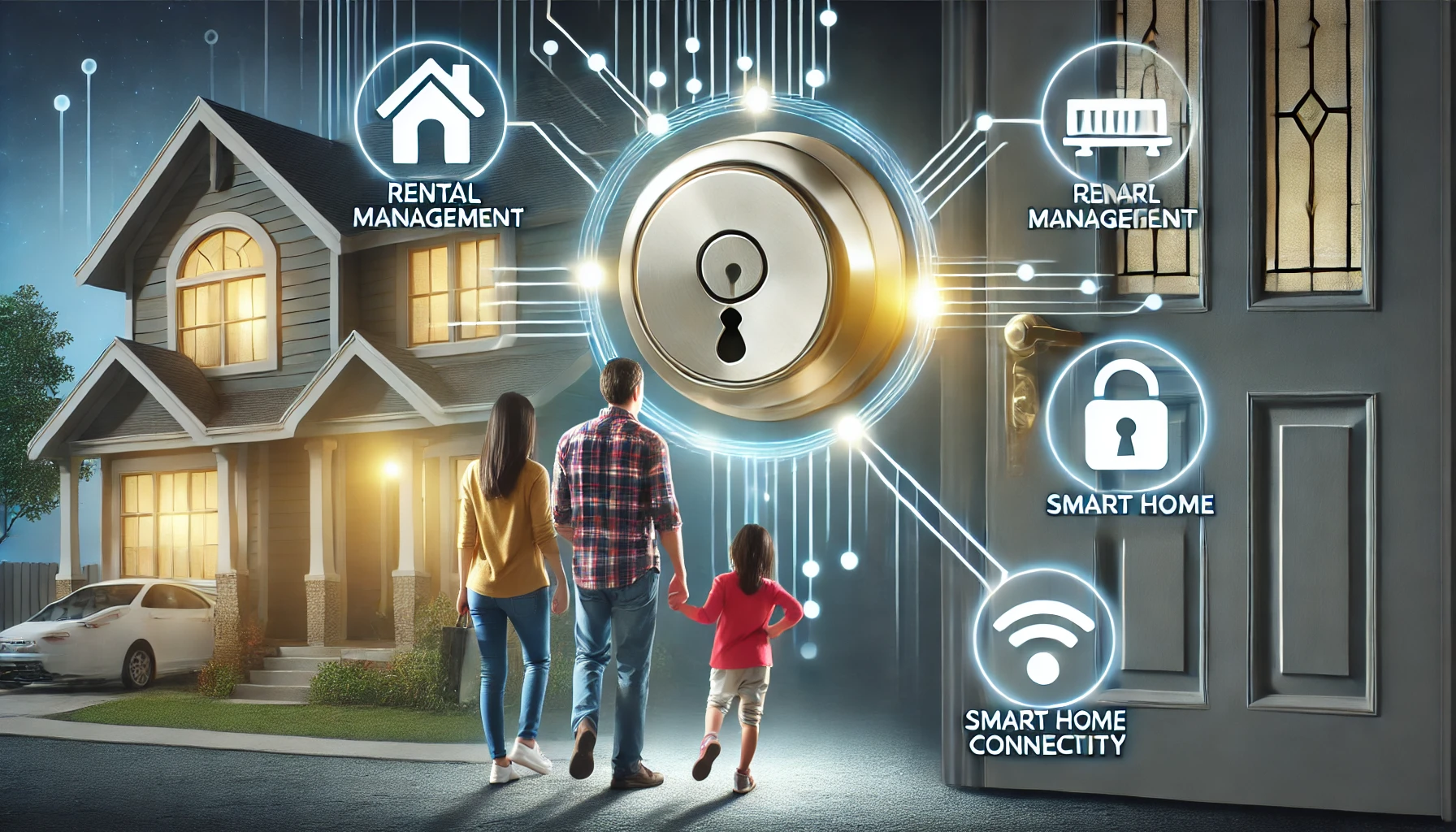
Smart locks are an excellent choice for homeowners looking to enhance their security and convenience. One of the key benefits is the elimination of the need for a physical key, which can be easily lost or duplicated. Instead, smart locks offer remote access and better management of entry, making them a flexible and secure option.
Ideal Use Cases for Smart Locks
Tech-savvy homeowners, rental property managers, and families with smart home setups often find smart locks indispensable.
Smart door locks are ideal for those who value convenience and integration. Rental property managers can benefit from features like temporary passcodes and remote access, enhancing security and eliminating the hassles of traditional keys. Families with smart home systems will appreciate the added convenience and connectivity. However, they may not be suitable for people with limited technical skills or those in areas with frequent power or internet outages.
Are Smart Locks Practical for Everyone?
No, smart locks are not suitable for everyone. Like the people who’re not comfortable with technology, or, users who worry about their security risk, potential kacking, or short-term renters, they don’t want to invest money on the smart locks.
Additional Information
- Market Insight: 45% of smart home device adopters prioritize security devices like smart locks.
- Expert Insight: Emily Grace, a tech consultant, notes, “Smart locks simplify rental property management like never before.”
- Case Study: A Florida Airbnb host saw a 50% drop in guest complaints after switching to smart locks.
[Sub-heading claims]
- Ideal for tech-savvy individuals and rental property managers.
- Families with smart home systems can benefit greatly.
- May not suit areas with unreliable power or internet.
Top Smart Locks with Advanced Security Features Worth Considering in 2024
The smart lock market is buzzing with innovation in 2024. Below, we highlight three of the best smart lock options that blend security, technology, and user convenience:
| Smart Lock Model | Key Features | Advantages |
|---|---|---|
| August Wi-Fi Smart Lock | – Remote Access: Control your lock from anywhere via Wi-Fi. – Easy Installation: Retrofit design fits over existing deadbolt. – Smart Home Integration: Compatible with Alexa, Google Assistant, and Apple HomeKit. | – Convenience: Manage access remotely, ideal for guests or service personnel. – User-Friendly: Simple setup without replacing existing hardware. – Versatility: Integrates seamlessly with various smart home ecosystems. |
| Schlage Encode Smart Wi-Fi Deadbolt | – Built-in Wi-Fi: Direct connectivity without additional hubs. – Enhanced Security: Built-in alarm technology senses potential security breaches. – Voice Control: Works with Alexa for hands-free locking and unlocking. | – Simplicity: No need for external hubs or accessories. – Safety: Immediate alerts for potential security issues. – Accessibility: Voice commands enhance user convenience. |
| Yale Assure Lock 2 | – Multiple Access Options: Supports keypad entry, biometric access, and traditional keys. – Smart Home Compatibility: Works with major platforms like Apple HomeKit, Alexa, and Google Assistant. – Sleek Design: Modern aesthetics suitable for various door types. | – Flexibility: Multiple entry methods cater to different user preferences. – Integration: Easily fits into existing smart home setups. – Aesthetics: Enhances door appearance with its sleek design. |
These smart locks offer a blend of security, convenience, and advanced features, making them top choices for homeowners in 2024.
Interactive Quiz: Are Smart Locks Right for You?
Instructions: Answer these questions to see if smart locks are a good fit for your lifestyle and needs.
- Do you prefer traditional door locks or smart door locks?
- A. Traditional door locks
- B. Smart door locks
- C. Not sure, I need more information
- How often do you lose or misplace your keys?
- A. Almost never
- B. Occasionally
- C. All the time!
- Do you own other smart home devices?
- A. Yes, my home is fully automated.
- B. I have a few devices.
- C. Not yet, but I’m interested.
- What level of security are you looking for?
- A. Advanced, with features like biometric access.
- B. Moderate, just enough for everyday use.
- C. Basic, similar to traditional locks.
- How comfortable are you with using technology?
- A. Very comfortable, I love trying new tech.
- B. Somewhat comfortable, as long as it’s user-friendly.
- C. Not comfortable, I prefer simple solutions.
- What’s your budget for a door lock?
- A. $200+ for premium features.
- B. $100-$200 for a balance of features and cost.
- C. Under $100 for basic functionality.
Results:
- Mostly A’s: Smart locks are perfect for you! You value convenience and are tech-savvy enough to make the most of these devices.
- Mostly B’s: You may benefit from a mid-range smart lock that balances modern features with affordability.
- Mostly C’s: A traditional lock or a simpler smart lock model may better suit your needs and comfort level.

